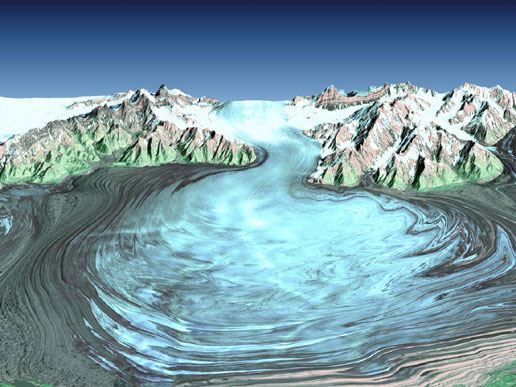
Himalayan Glaciers are not melting as been said by the Environment Minister Jairam Ramesh and VK Raina who is the India’s senior most glaciologist, states that the glaciers are not receding. The Indian Ministry of Environment and Forests revealed on the press conference that the Himalayan glaciers were not shrinking at the rate that scientists led the world to believe and also the melting of any glacier is not caused by global warming in the mountain range.
It is said that the melting of glaciers was highest in Jammu and Kashmir but it is relatively lower in other Indian states like Himachal Pradesh, Uttarakhand, and lowest in Sikkim.Many Himalayan glaciers are also retreating.
The findings of the study are opposite to the IPCC’s 2007 report which said that the Himalayan glaciers were shrinking faster and could disappear by 2035.Ramesh however, said, “We are not challenging the IPCC. We have an alternate view. I would like to call all scientists of the world to over critique the report. They may debate the causes.
He also said that 15 weather stations will be set up in Uttarakhand, Sikkim, Arunachal Pradesh and Jammu. On his part, Raina said, “We cannot call it abnormal as we don’t know what is normal. Also it doesn’t suggest that they will vanish within decades. Though glaciers contribute only about 10 per cent of the water flow in south Asian rivers, they are important to ensure perennial water flow in these rivers with 1.3 billion people dependent on them.”
The IPCC has estimated that the retreat of glaciers could affect the water supply of roughly 750 million people across South Asia and China. The current trends in glacial melt suggest that Ganga, Indus, Brahmaputra and other rivers that are criss-cross to the northern Indian plain may become seasonal rivers in the near future, as a consequence of climate change, with important ramifications for poverty and the economies in the region.
Well on the whole there is some hope been given by our Indian minister but we have to take our step forward to stop global warming A follow-up report by the IPCC released in April 2007 warned that global warming could lead to large-scale food and water shortages and have catastrophic effects on wildlife. We should use CFL instead of ordinary bulbs; tap should be closed while not in use.




